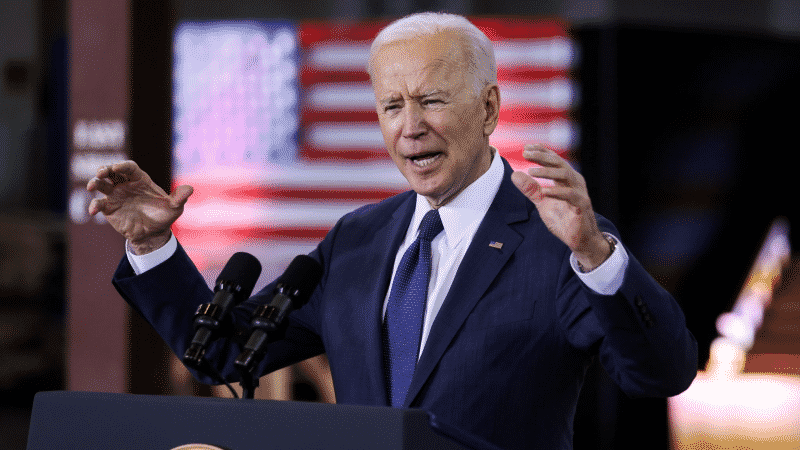U.S. President Joe Biden’s vast plan to modernize the nation’s infrastructure includes hundreds of billions of dollars to boost the market for electric vehicles, renewable power and advanced clean energy technologies, while stripping away subsidies for fossil fuels.
That makes the $2 trillion infrastructure blueprint one of the administration’s biggest steps to date in achieving its agenda to decarbonize the U.S. economy by 2050 and restore the nation’s leadership in addressing global warming.
While much of the package is aimed at traditional infrastructure goals like rebuilding roads and bridges, about a third, or $628 billion, is linked to climate, according to an estimate by investment firm Raymond James.
The proposals, which must still be debated and approved by Congress before becoming reality, drew cheers from the renewable energy industry and some environmentalists, along with criticism oil and gas drillers.
“President Biden’s infrastructure proposal is a significant step in meeting our collective clean energy goals,” Solar Energy Industries Association Chief Executive Abigail Ross Hopper said in a statement.
The American Council on Renewable Energy said the plan “will move the clean energy sector beyond the endless cycles of temporary stopgap incentives.”
The American Petroleum Institute, which represents the country’s biggest oil and gas companies, said the plan would “undermine the nation’s economic recovery and jeopardize good-paying jobs.”
Among the biggest climate-related provisions, the plan includes $174 billion in investment to “win the EV market” by spurring domestic supply chains and giving consumers rebates to buy electric cars.
It also delivers a key win for wind and solar project developers with a proposal to extend the industry’s key tax credits by a decade, far longer than the timelines the subsidies have enjoyed in the past.
By contrast, it would strip away billions of dollars’ worth of subsidies available to fossil fuels producers, mainly in the form of tax breaks.
GREEN STOCKS JUMP
Shares of electric vehicle maker Tesla Inc were up 3.7% at $659.32 in early afternoon trading, and the stocks of U.S. solar companies including SunPower, Sunrun and First Solar were also trading higher.
The White House said the new EV funds will result in more U.S. production of EV components and batteries and fund new consumer rebates and tax incentives. It also proposes grants and incentives to build a national network of 500,000 EV chargers by 2030. The plan also calls for replacing 50,000 diesel transit vehicles and electrifying at least 20% of school buses.
It does not follow California’s lead in setting a date to phase out gasoline-powered vehicles.
The infrastructure plan vows to spend $165 billion on public transit, Amtrak and other rail projects – moves that could shift more Americans out of private cars.
The plan will also leverage the government’s purchasing heft and require that federal facilities be powered around the clock with carbon-free sources.
It also calls for $15 billion for projects that demonstrate emerging energy technologies like carbon capture and storage, advanced nuclear and hydrogen.
(Reporting by David Shepardson and Nichola Groom; Editing by Christopher Cushing and Aurora Ellis)

























 Continue with Google
Continue with Google